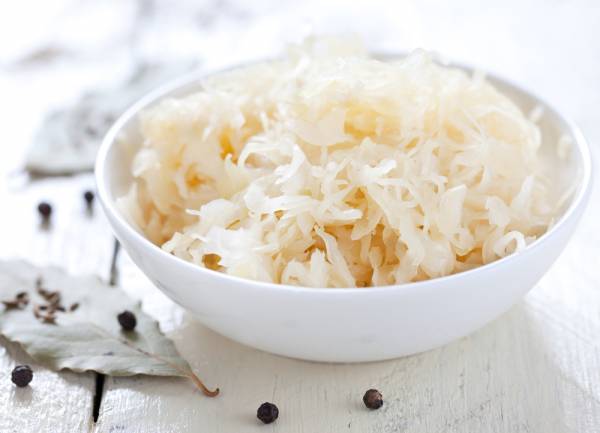I am consistently reminded that I live in a very special place. Northern California is surrounded with redwood trees, the ocean and mountains, and an incredible variety of local and organic foods, which we are able to enjoy throughout the whole year. Since I dove into the world of raw foods a few years ago, I have learned many positive health benefits from eating fermented foods.
But, I will be honest: I have not consciously given fermented foods any credit until the past couple of months when I began to learn more about fermentation through my school, the Institute for Integrative Nutrition, where I am studying to become a Certified Health Coach. During my classes, I have been learning about many diets that have evolved over the course of human existence. I became intrigued by the the Weston Price Foundation and their explanation of the history and importance of incorporating fermented foods in our diets.
Here is a brief history of fermentation from the Weston Price Foundation website:
It may seem strange to us that, in earlier times, people knew how to preserve vegetables for long periods without the use of freezers or canning machines through the process of lacto-fermentation. Lactic acid is a natural preservative that inhibits putrefying bacteria. Starches and sugars in vegetables and fruits are converted into lactic acid by the many species of lactic-acid-producing bacteria…The ancient Greeks understood that important chemical changes took place during this type of fermentation. Their name for this change was “alchemy.” Like the fermentation of dairy products, preservation of vegetables and fruits by the process of lacto-fermentation has numerous advantages beyond those of simple preservation. The proliferation of lactobacilli in fermented vegetables enhances their digestibility and increases vitamin levels. These beneficial organisms produce numerous helpful enzymes as well as antibiotic and anticarcinogenic substances. Their main by-product, lactic acid, not only keeps vegetables and fruits in a state of perfect preservation but also promotes the growth of healthy flora throughout the intestine.1
Basically, you are converting carbohydrates, such as sugar, to an acid or an alcohol. When fermenting food, bacteria is used to create lactic acid, which is an important source of energy in food and not just the burning sensation you get after completing a workout.
Some of the important health benefits of fermentation:2
- Fermentation is the only type of preparation of foods that cannot destroy certain nutrients, will creates more nutrients and enhances others.
- It removes toxins and harmful bacteria found in many foods.
- It will improve your digestion, especially when consumed before your meal and also allows for your nutrients to be absorbed properly.
- It aids in the preservation and creation of important enzymes.
- Fermentation is a huge supporter to your immune function. It increases your B vitamins, omega-3 fatty acids, digestive enzymes, lactase and lactic acid that fight off harmful bacteria.
The most popular foods you can easily find in your local, organic, natural food store or farmer’s market include: raw sauerkraut, kimchi, kombucha, kefir (from cow, goat, or coconut milk), cheeses, pickles, olives, beer, wine, and raw cacao. As always, I encourage you to buy organic and support local supplies as much as possible.
 After learning about the incredible health benefits from adding fermented foods to one’s diet, I decided to give it a try. I do drink a kombucha almost every day, but be warned some of those include added sugars that kill a lot of the bacteria that was originally created. I believe we can get many of our vitamins, minerals, and nutrients from foods, so, instead of purchasing probiotic supplements, I bought a huge head of cabbage and spent some time in the kitchen preparing a batch of my own organic, raw sauerkraut. I began to add a small serving of sauerkraut to my lunch each day.
After learning about the incredible health benefits from adding fermented foods to one’s diet, I decided to give it a try. I do drink a kombucha almost every day, but be warned some of those include added sugars that kill a lot of the bacteria that was originally created. I believe we can get many of our vitamins, minerals, and nutrients from foods, so, instead of purchasing probiotic supplements, I bought a huge head of cabbage and spent some time in the kitchen preparing a batch of my own organic, raw sauerkraut. I began to add a small serving of sauerkraut to my lunch each day.
Since adding fermented foods to my diet, I have noticed a positive experience relating to my digestion of food. I can finally eat cruciferous vegetables again and I no longer have indigestion after eating melon and other fruits. My digestive track is very happy with all of the healthy bacteria dancing around on a daily basis. I highly encourage you to read more about fermentation and to give it a try. Your gut will thank you.
Have you tried fermented foods? What was your experience? Post to comments below.
Photos courtesy of Shutterstock.






